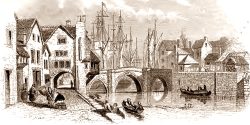Friday 20th September 2013 at 3 30pm
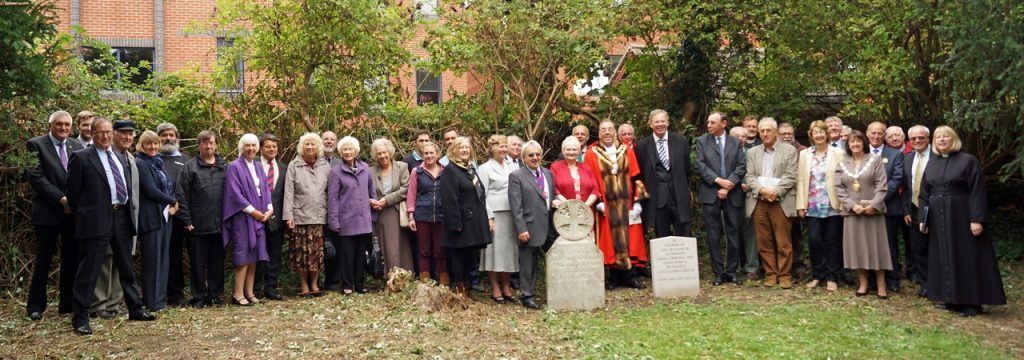
The Mayor of Bridgwater, Councillor David Loveridge, having greeted the Deputy Lord Lieutenant of Somerset, opened the Ceremony at 3 30pm.
He introduced Dr Peter Cattermole, Chairman Bridgwater Heritage Group, who thanked all those who had helped to make the re-dedication possible.
The Mayoress, Mrs Shirley Loveridge, and the Mace Bearer, Mr Chris Hocking were in attendance.
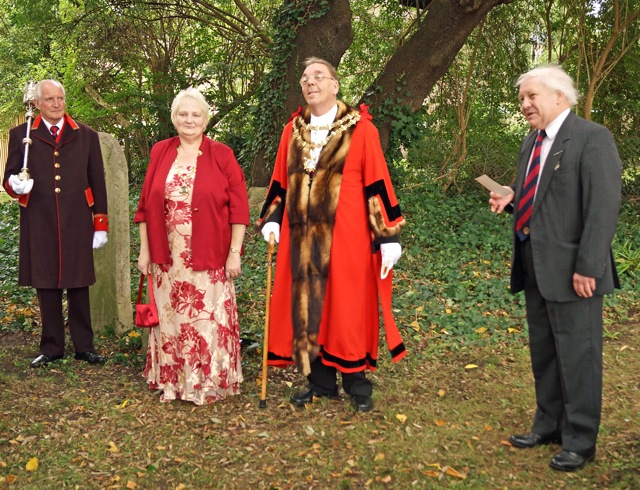
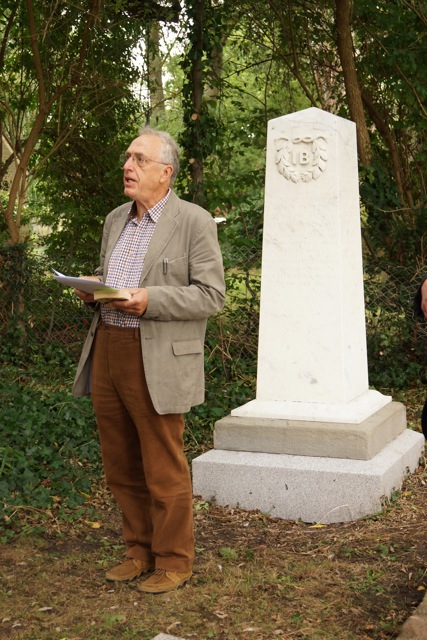
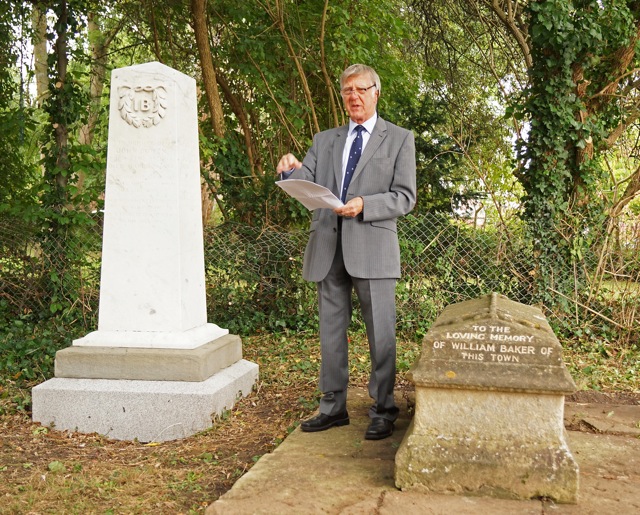
He is buried in the Bowen vault.
William Baker (1787-1853)
Firstly can I say how pleased I am to be here this afternoon, as a representative ofthe Geological Society, for the rededication of this memorial to William Baker, one ofour Fellows. As a geologist I am perhaps a little disappointed at his, or his family’s,choice of stone. As you can see the limestone has weathered rather badly in sharpcontrast to that of his friend, the engineer John Bowen.
Baker was born in 1787, the son of a Bridgwater butcher who partly grazed andfarmed his own stock. His formal education seems to have been minimal, althoughhe developed an interest in natural history as he visited neighbouring villages withhis father. At 13 he was apprenticed to Mr Tuthill, a Bridgwater currier. Recognisinghis lack of education, in his free time he read avidly, borrowing books and buyingthem with money he earned from making leather stocks for the BridgwaterVolunteers, for whom he played as a fifer from the age of 9 to 18. On completion ofhis apprenticeship he travelled, working at his trade, until returning to Bridgwater in1809. Here he set himself up in a small shop in Fore Street, continuing to trade forover 40 years. Soon married, with ultimately 6 children, he became a respected localbusinessman, serving the town in a variety of roles – churchwarden, town councillor,alderman and magistrate (but never mayor).
Once he had settled back in Bridgewater, Baker became friendly with contemporarylocally-based natural history enthusiasts with whom he rambled over the Quantocksand elsewhere in Somerset collecting specimens. These friends included the grocerThomas Clark who observed flowers and trees, Robert Anstice who collected fish,with Baker himself concentrating on birds and insects. He also corresponded witheminent naturalists, such as William Leach, a specialist in insects and crustacea atthe British Museum and William Buckland, Reader in Geology at Oxford University.
It was his correspondence and later friendship with Buckland that led to hisnomination and then election to Fellowship of the Geological Society in November1842. Baker had a collection of curiosities and was said to own an alligator’s headand a boa constrictor. The eccentric Buckland not only owned a wide range ofanimals but also declared his intention of eating his way through the animal kingdom. Dining with the Bucklands was an adventure, as almost any animal might be servedup from mice on toast (said by his daughter to be not bad) to crocodile steak (said to be awful). Buckland regarded Baker highly as he not only nominated him forFellowship but invited him to dine with him at the Geological Society Club, anexclusive dining club attended by a few senior Fellows.
Baker collected for the rest of his life, moving to larger premises in St Mary Street toprovide more space for his collections and growing family. On the formation of theSomerset Archaeological and Natural History Society he was appointed its firstSecretary and presented 7 papers to it. In 1851 his health began to deteriorate buthe remained active until his death two years later. About 80 of the principalinhabitants of the town, including the Mayor, attended his funeral, forming aprocession from the Town Hall. In his monograph on Baker’s life his friend Bowenrecords that “All seemed to feel his loss as that of an able, good and most kind man,who in the varied path of his life had uniformly endeavoured to do his duty”. This is atribute of which we could all be proud and I am sure that William Baker would behonoured that, 160 years after his death, the Mayor and citizens of Bridgwater, andothers like me from further afield, are meeting to remember his life and celebrate hisachievements as a public servant, naturalist and geologist.
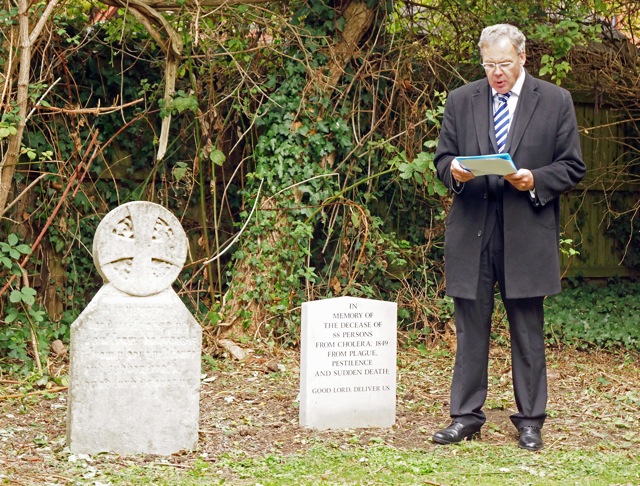
Cholera Victims Speech
Cholera is a bacterial disease linked to poor sanitation in water supplies. Asiatic Cholera originated in India, in the early 1800s. This strain is notorious throughout the world for being a particularly excruciating and virulent form of that illness that can kill within about three days. Historically, outbreaks of Asiatic cholera spread rapidly. The victims of Bridgwater’s Cholera outbreak in1849 were one such case.The Bridgwater epidemic in the 1840s was a part of the second wider European pandemic of the disease at the time. Knowledge pertaining to the disease was sparse and there was no consensus on how it was spread. Medical authorities in Bridgwater were split between Catagionists, who recommended quarantine of all cholera sufferers and Miasmatists, who recommended increased cleanliness and sanitation.As there had been a previous outbreak of cholera in Bridgwater in the early 1830s, a health committee already existed. This committee was comprised of the Mayor, four councillors and any other councillors who were also doctors. Owing to newspaper reports of cholera, this committee re-convened in early 1849.The reoccurrence of cholera in Bridgwater in the late 1840s is attributed to many different sources. Oysters sold that were washed in contaminated water,a traveller from Bristol who collapsed and was brought to the workhouse, ignored calls for better sanitation. Regardless of its origin, this wave of the disease was truly devastating. Many sufferers and relatives of sufferers were forced from their homes as buildings were whitewashed with hot lime. The death toll for all parishes covered in the Bridgwater Poor Law Union was 235; 88 of which were from Eastover. These deaths mostly took place in August 1847. Medical facilities at this time were overstretched. Despite £428 worth of improvements being carried out to the Bridgwater infirmary, the Bridgwater Health Committee also thought it necessary to convert the old poor house in OldTaunton Road into a temporary hospital. By September that same year, a day of solemn prayer was held across the town, with all shops closed and all churches holding services. Churches gave services of thanksgiving in December that year, also. Today, we echo that solemnity, and that giving of thanks. We echo the words upon this memorial “From plague, pestilence and sudden death, Good Lord deliver us”.
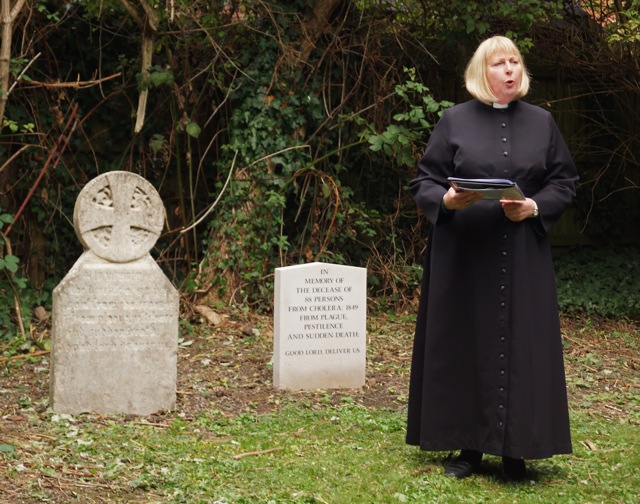
The Archdeacon of Taunton, the Venerable John Reed, gave the Blessing.
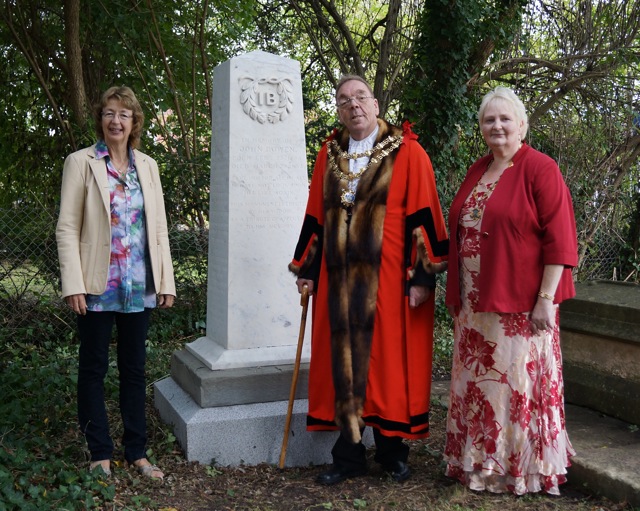
Mrs Ros Boon, a descendant of John Bowen, with the Mayor and Mayoress by the Bowen Obelisk.
